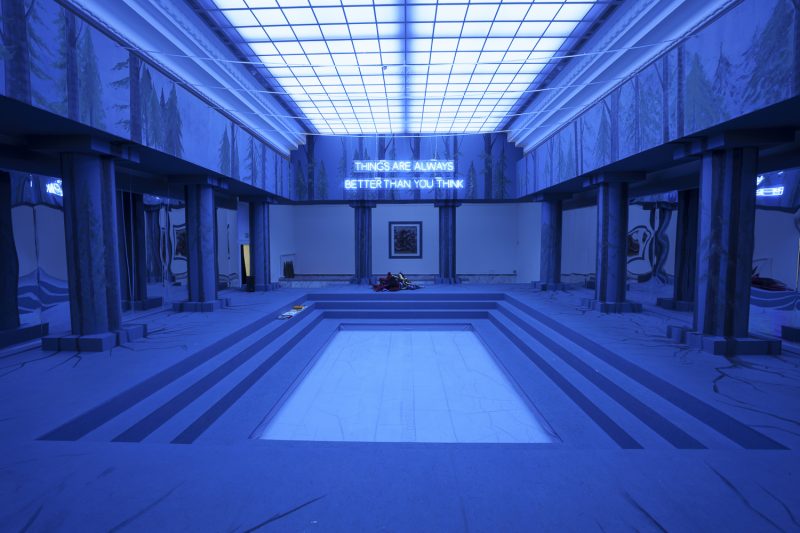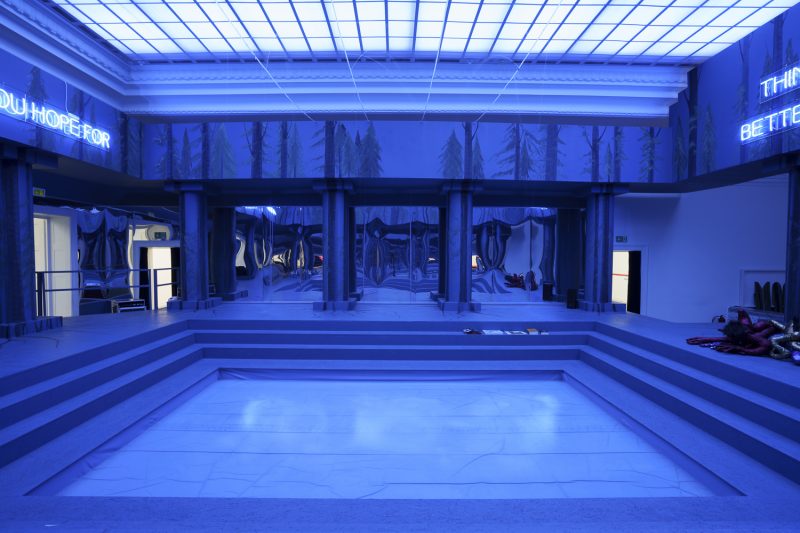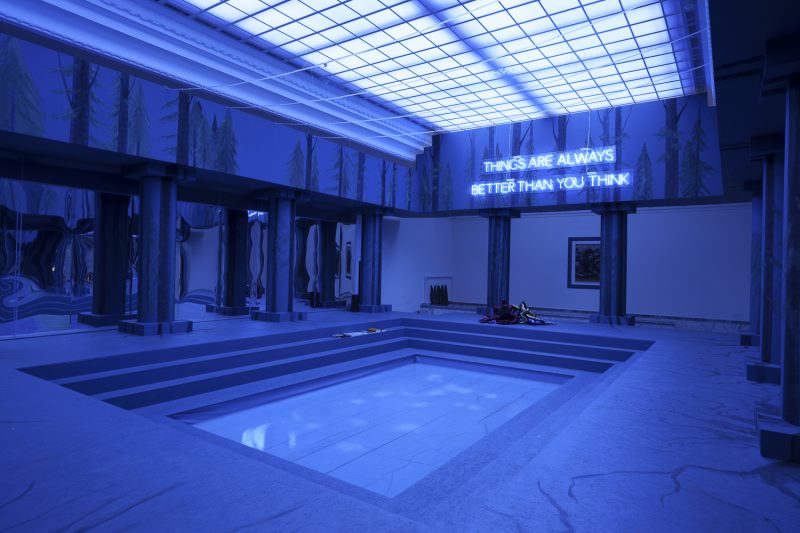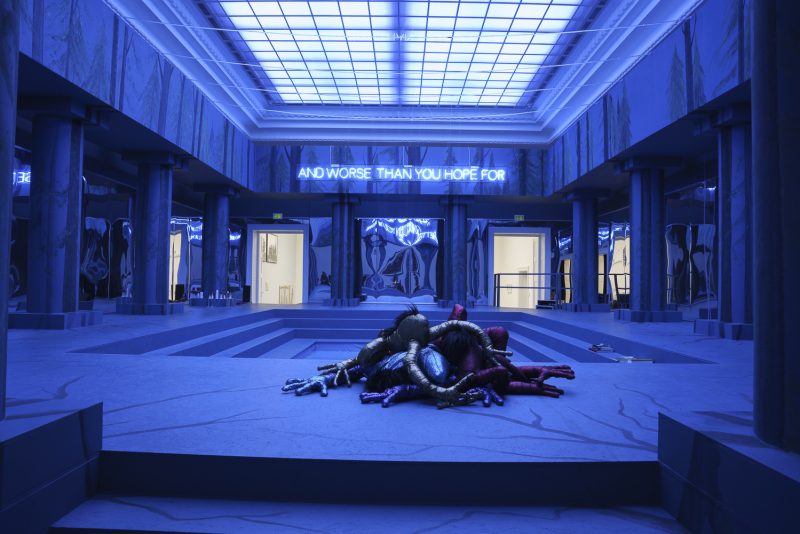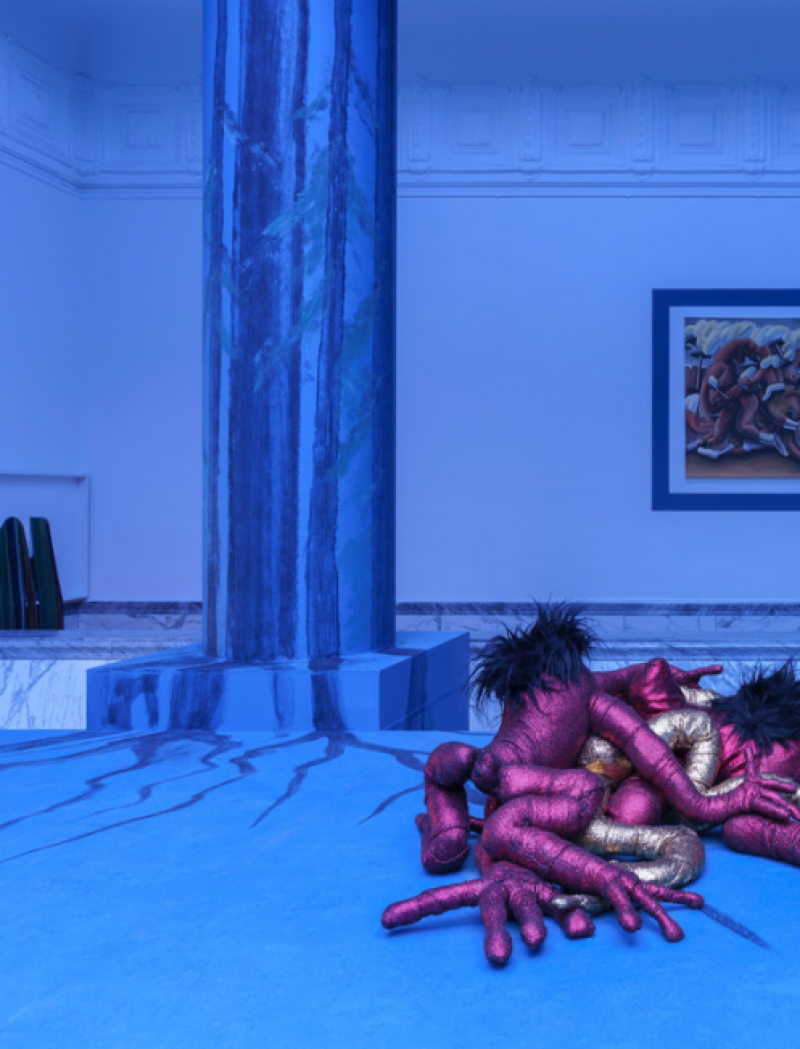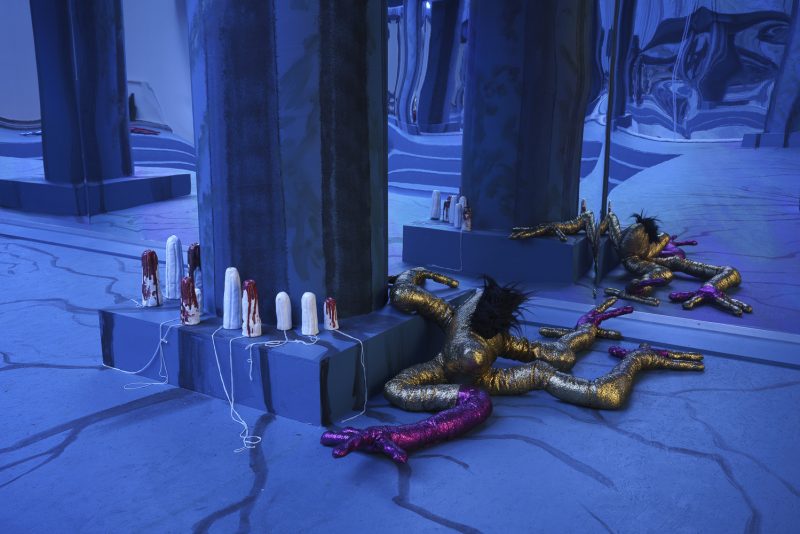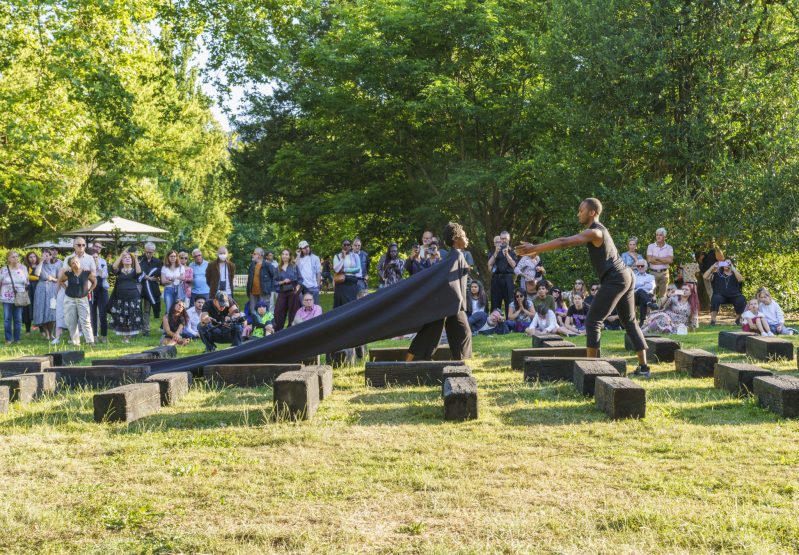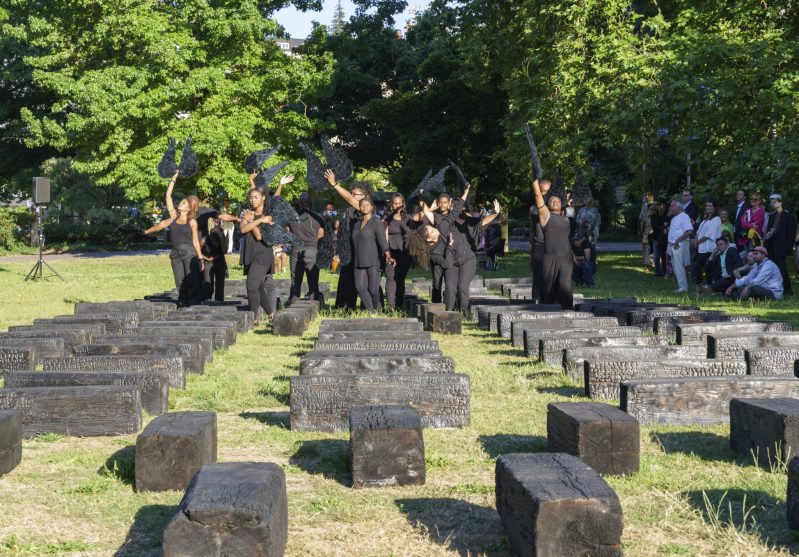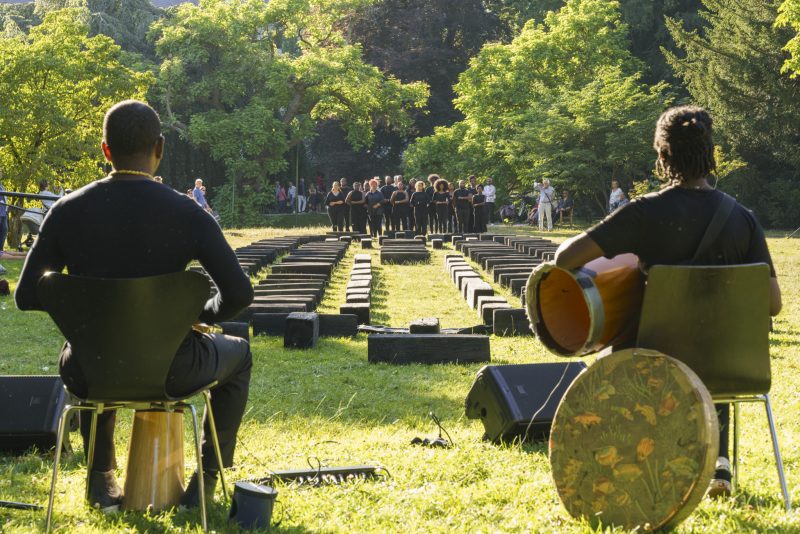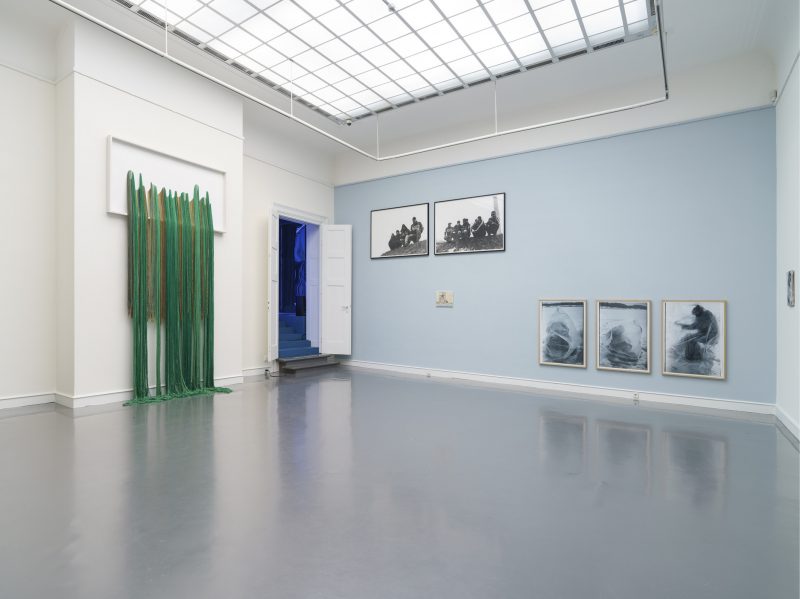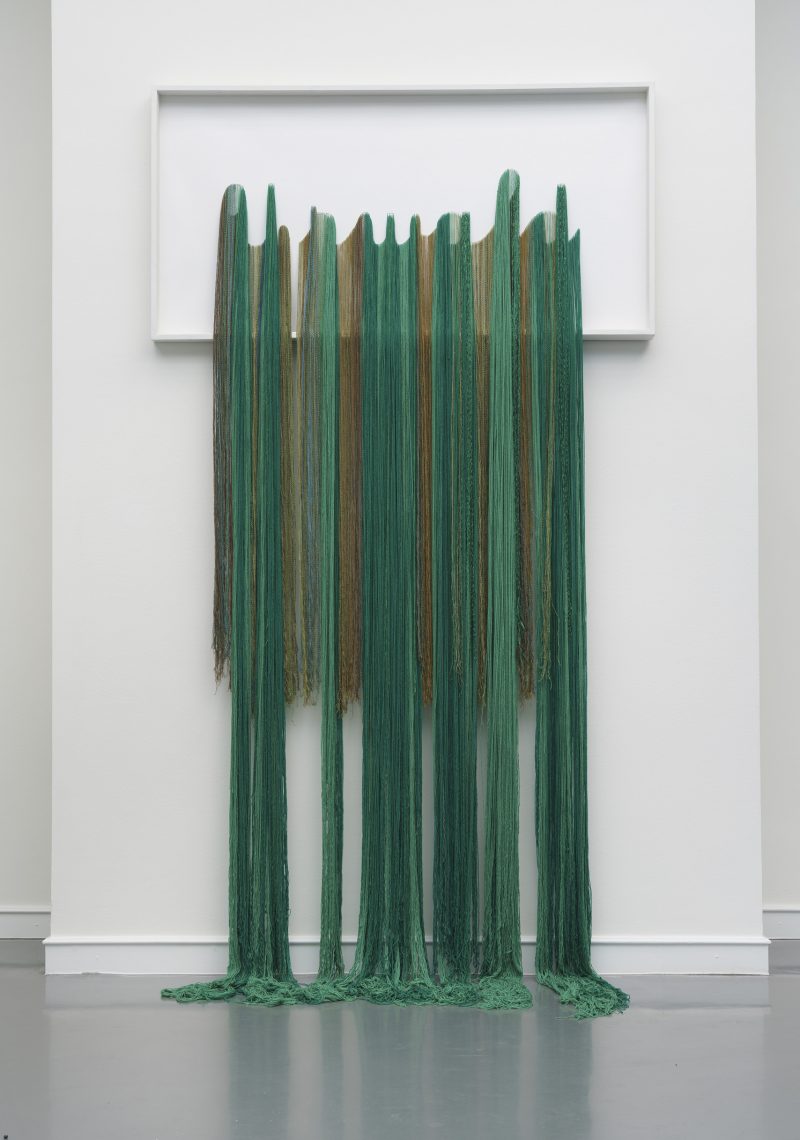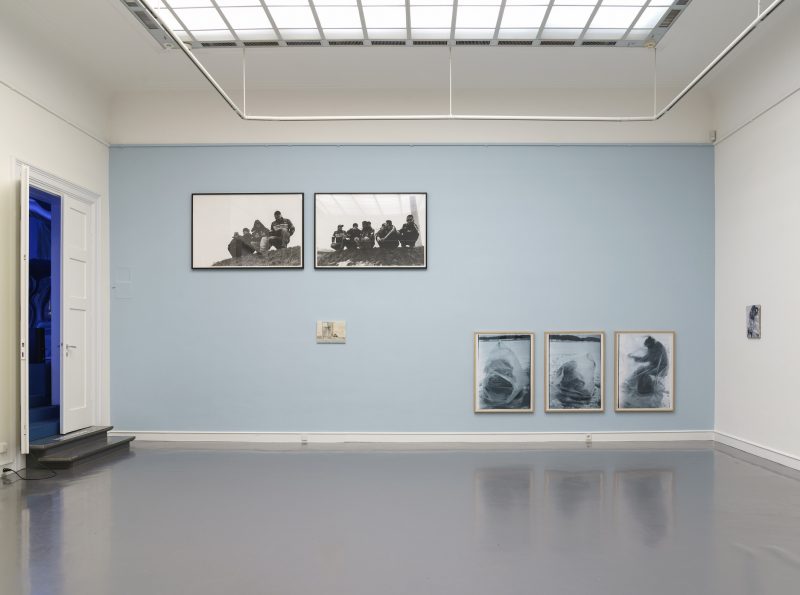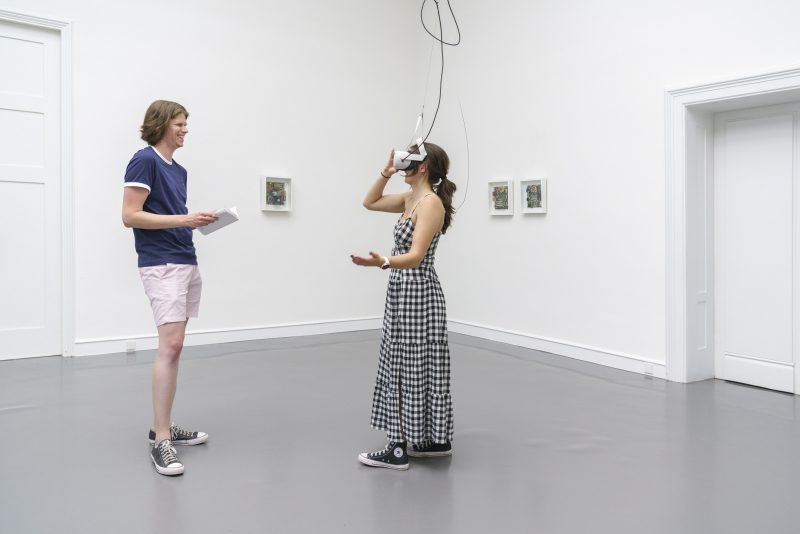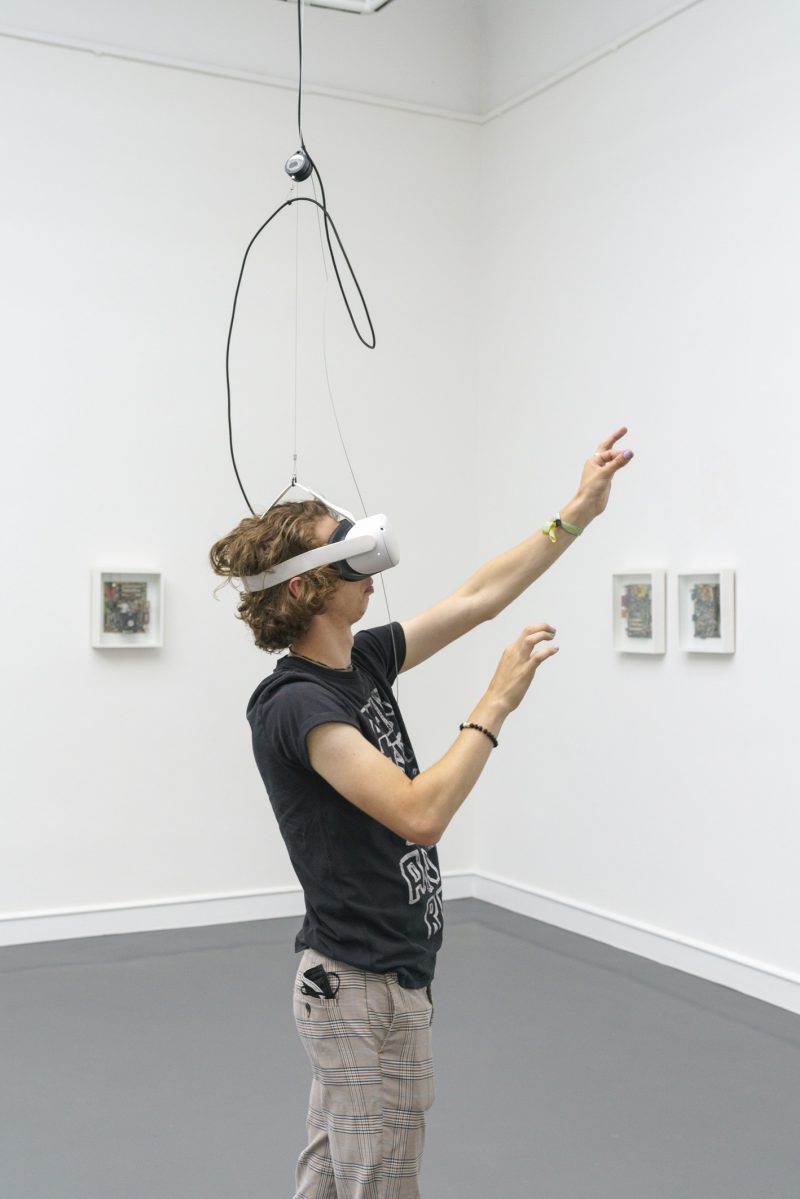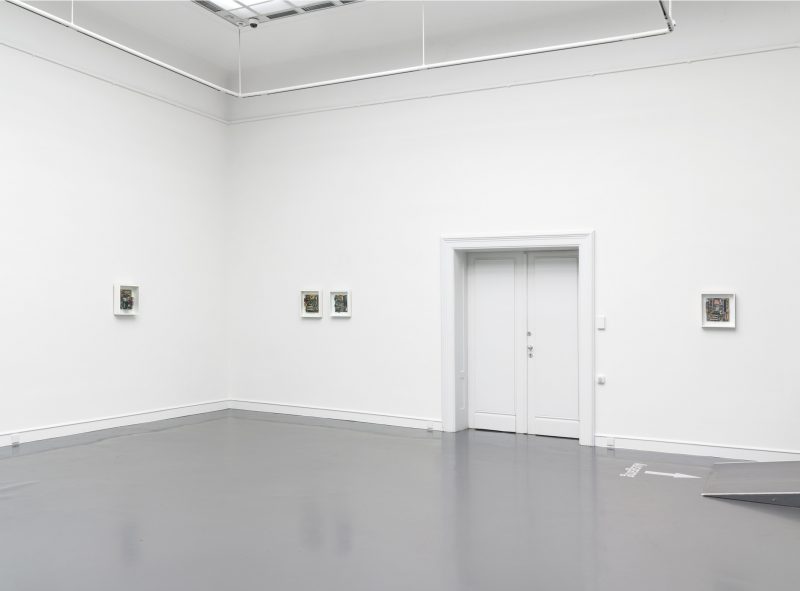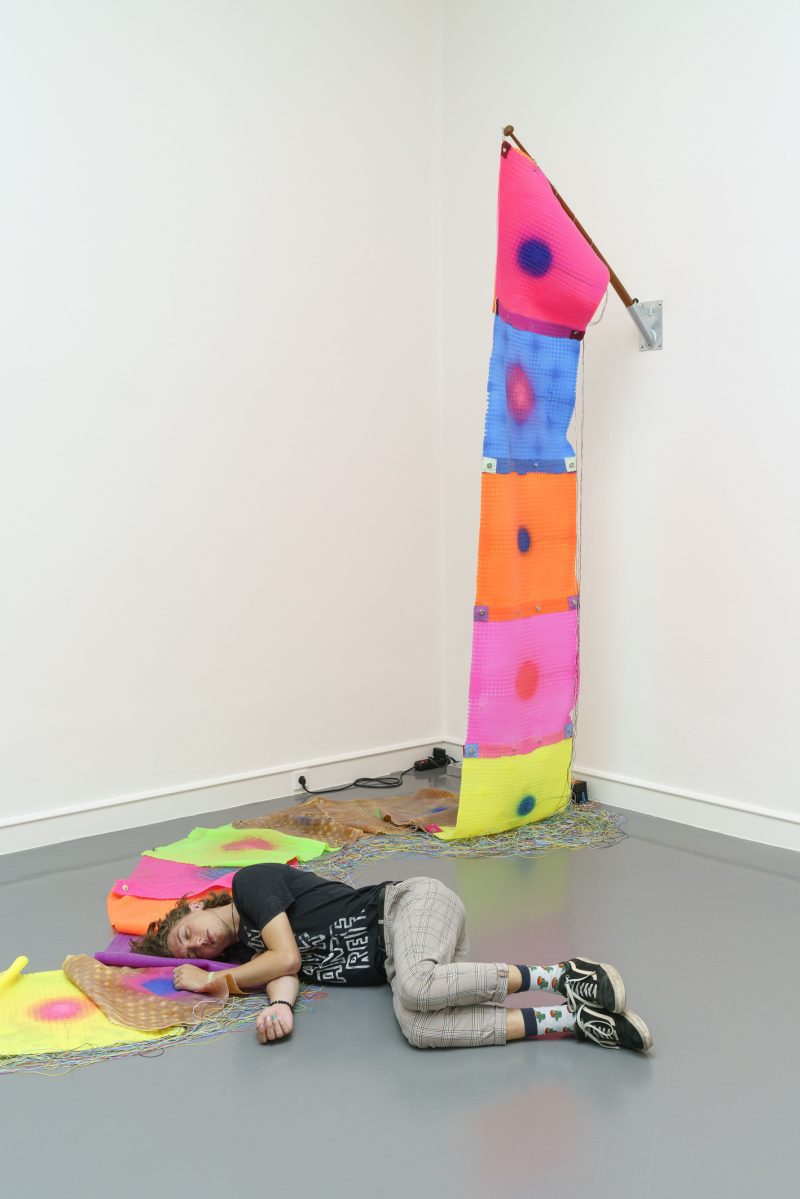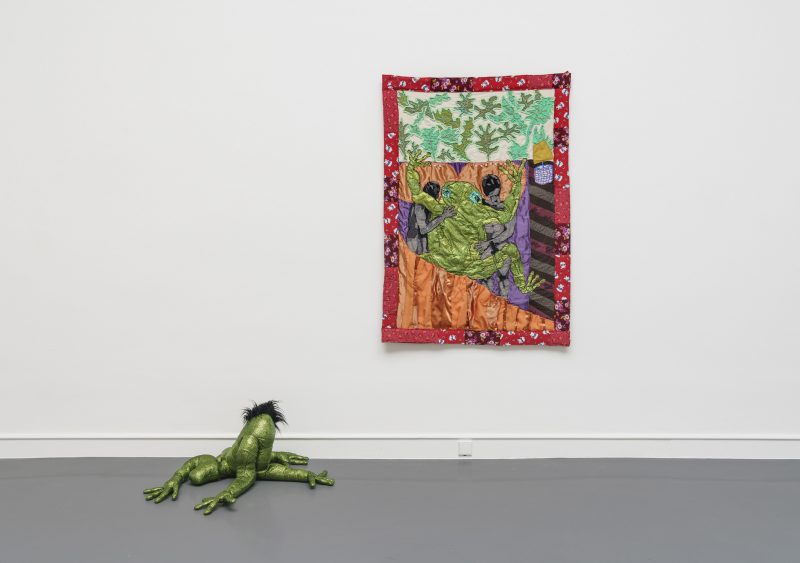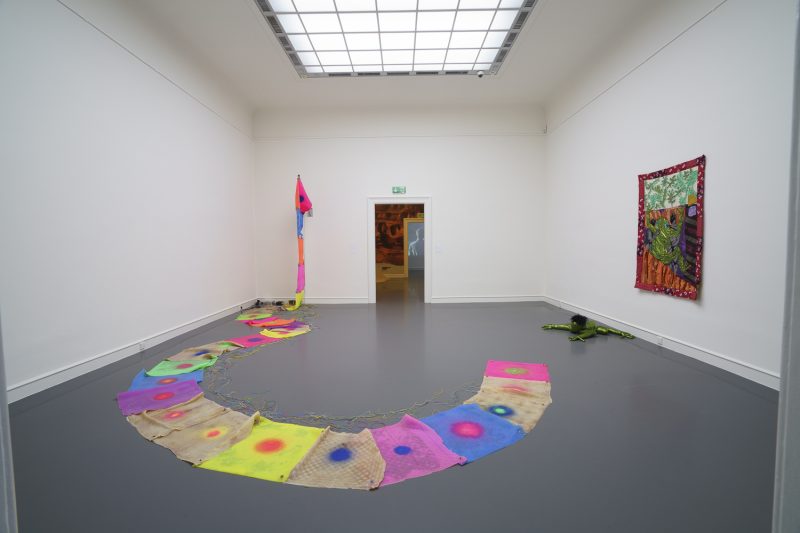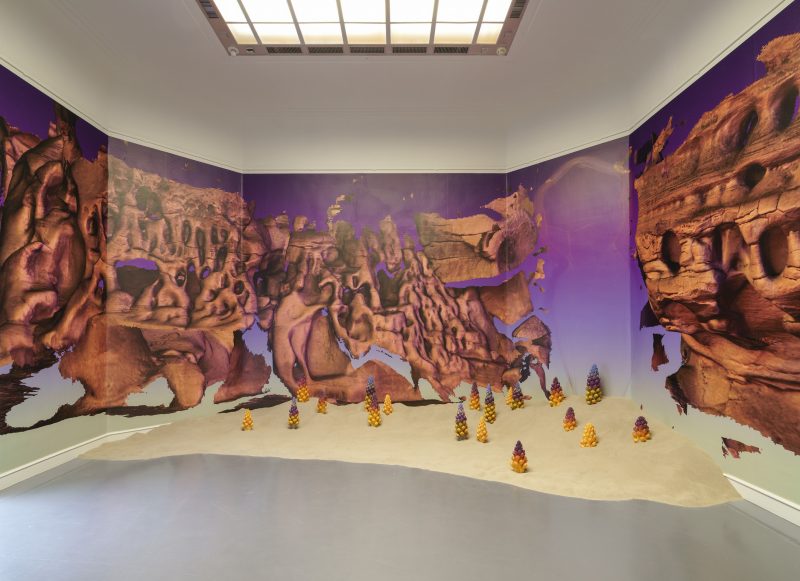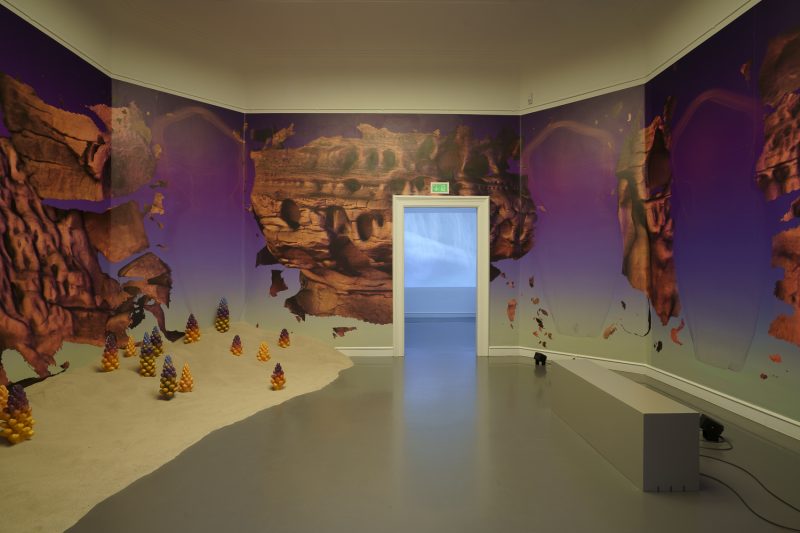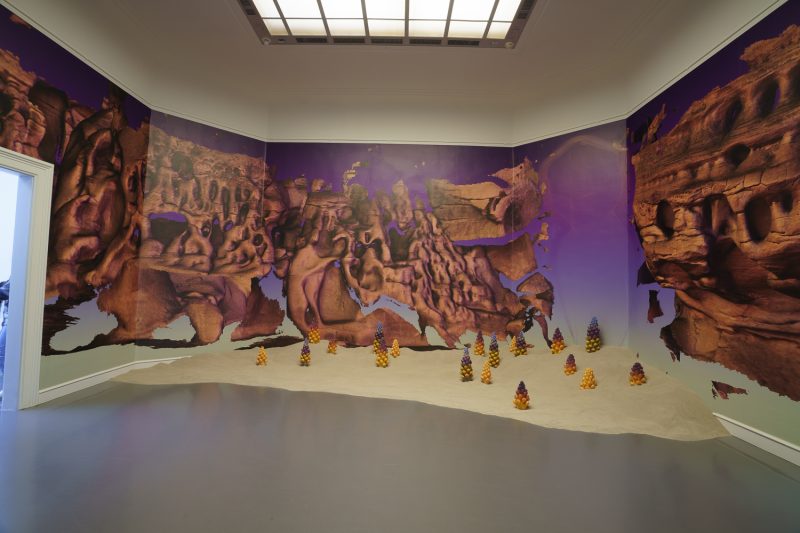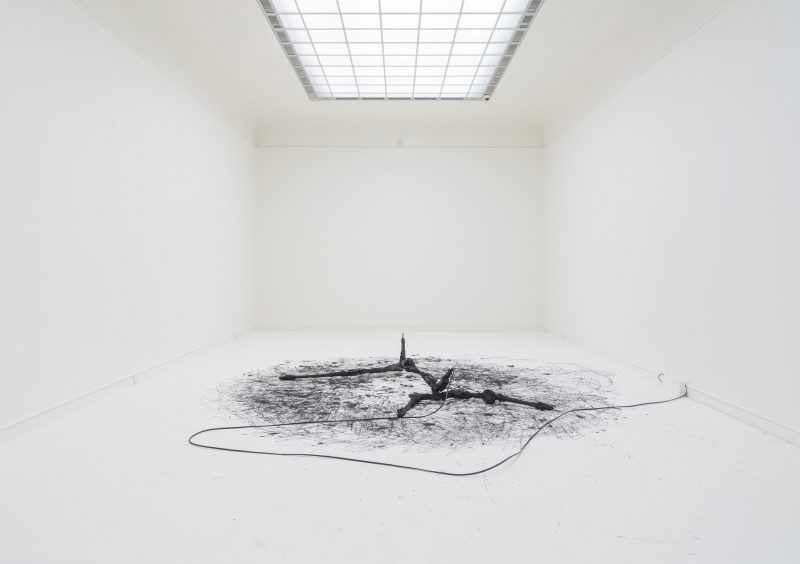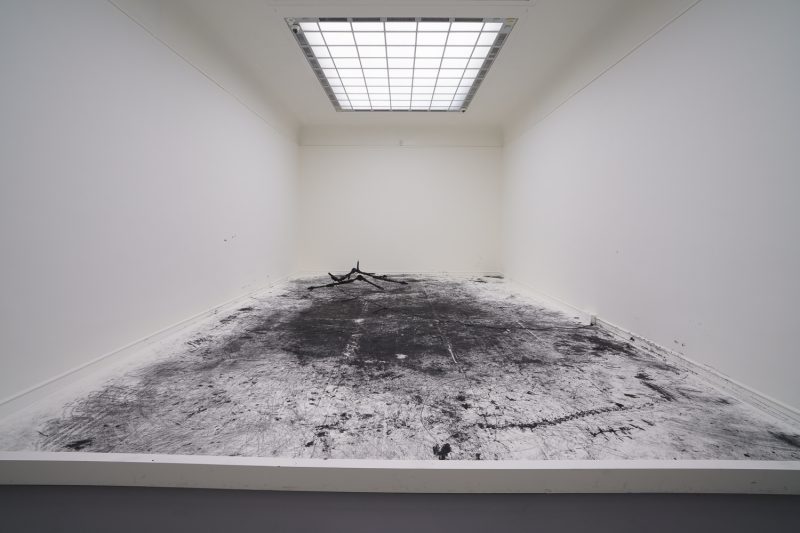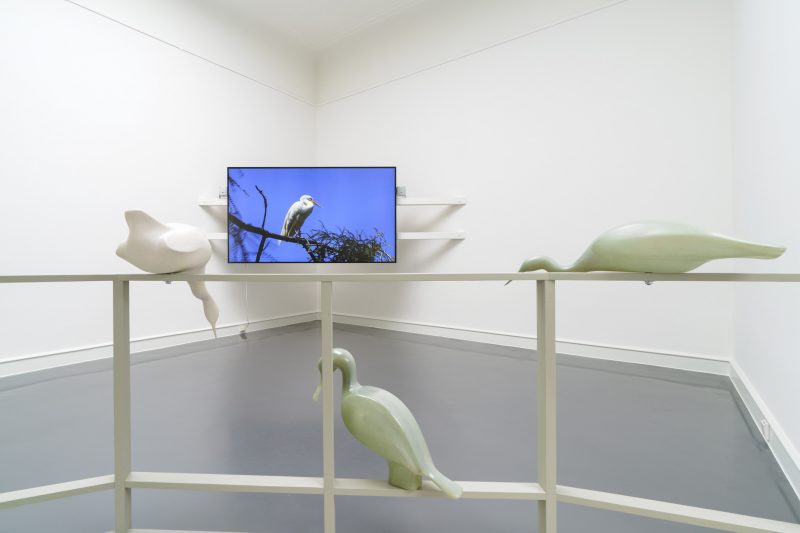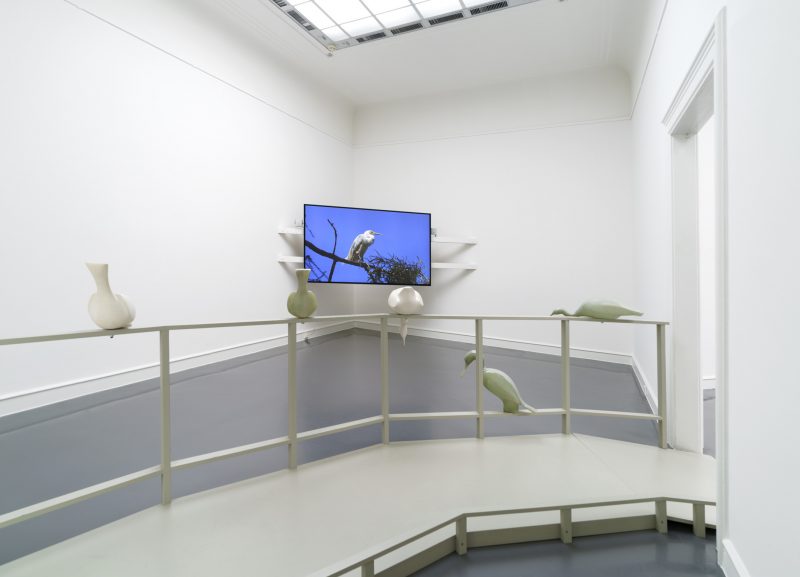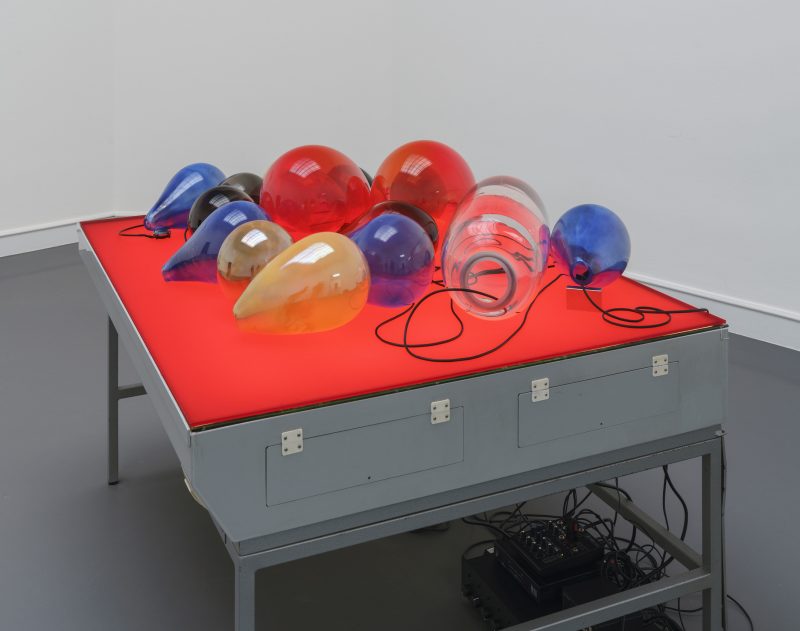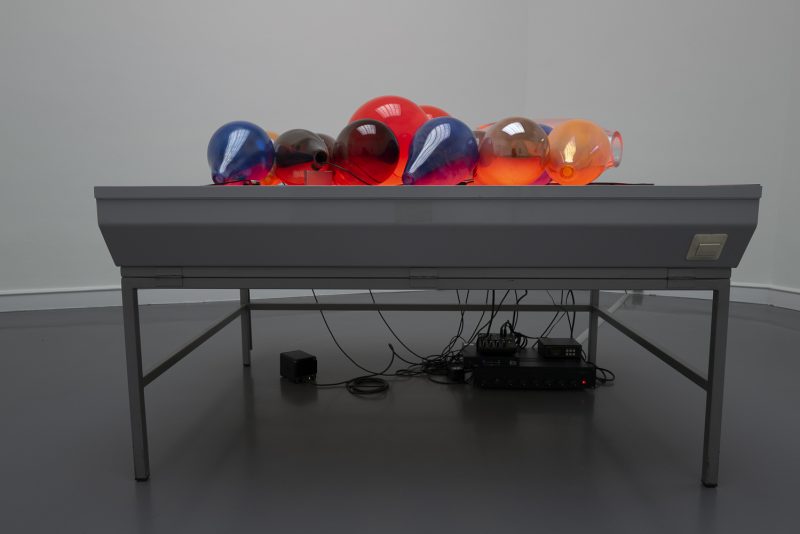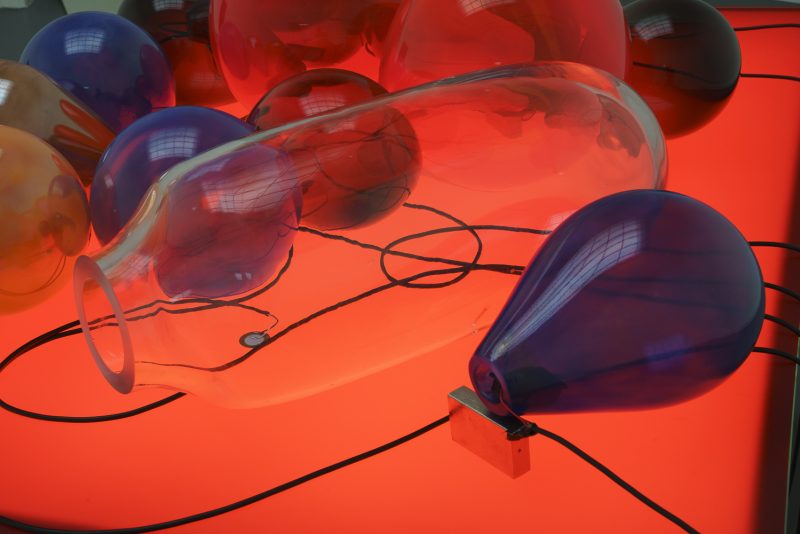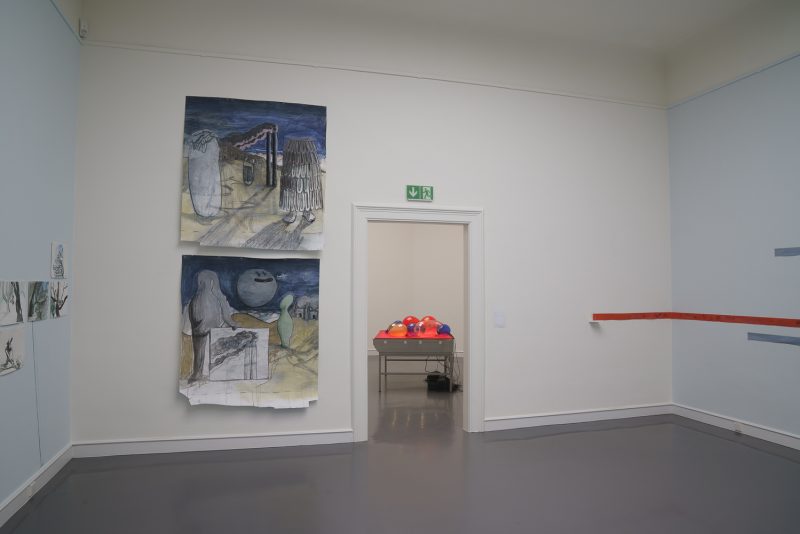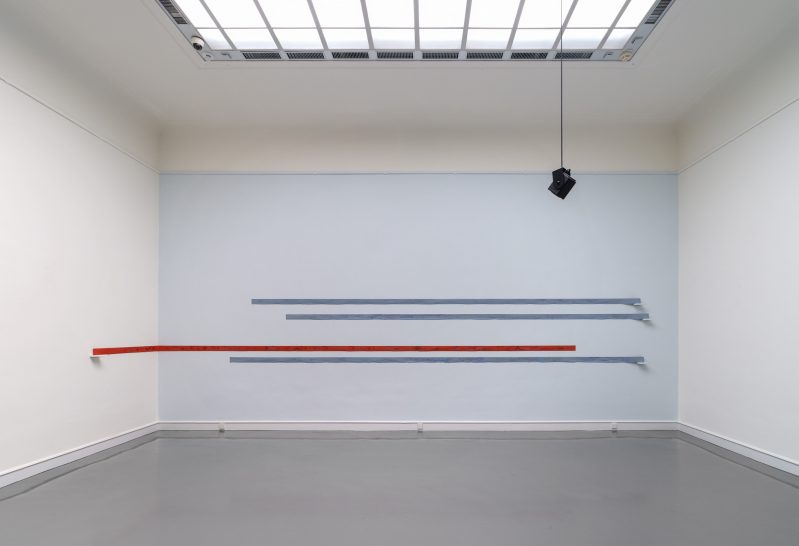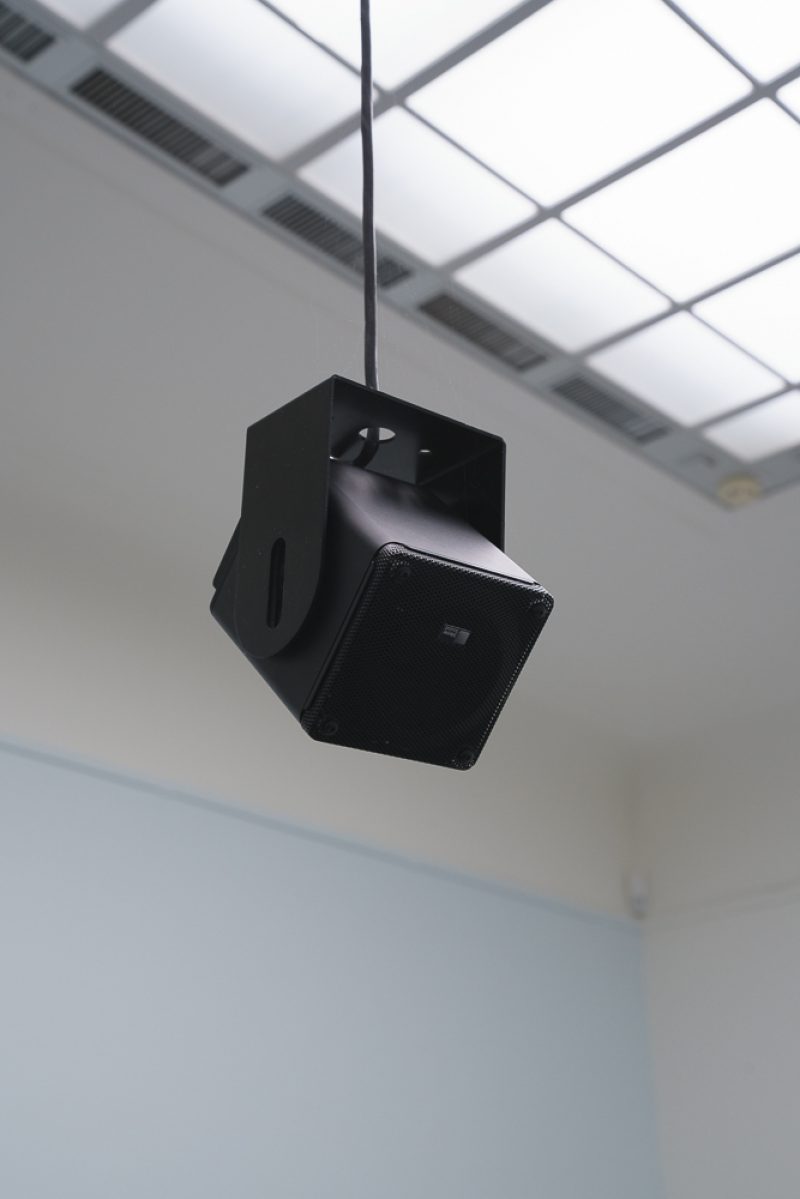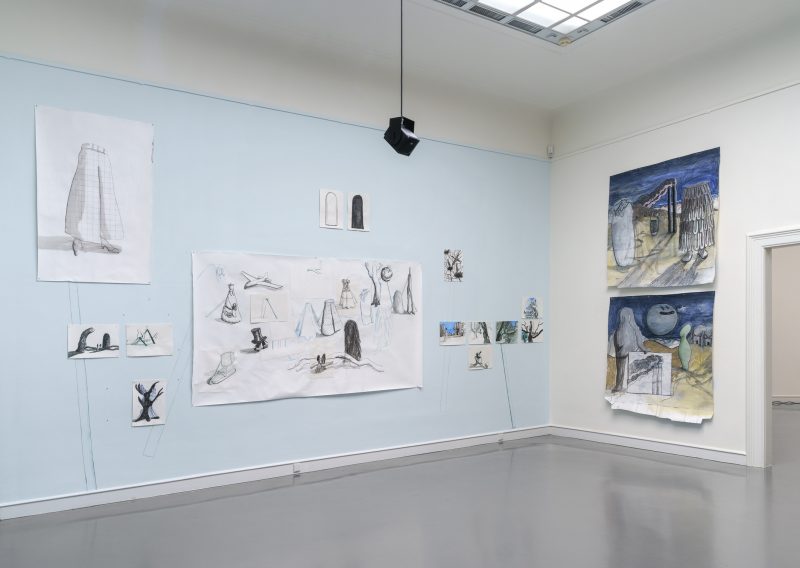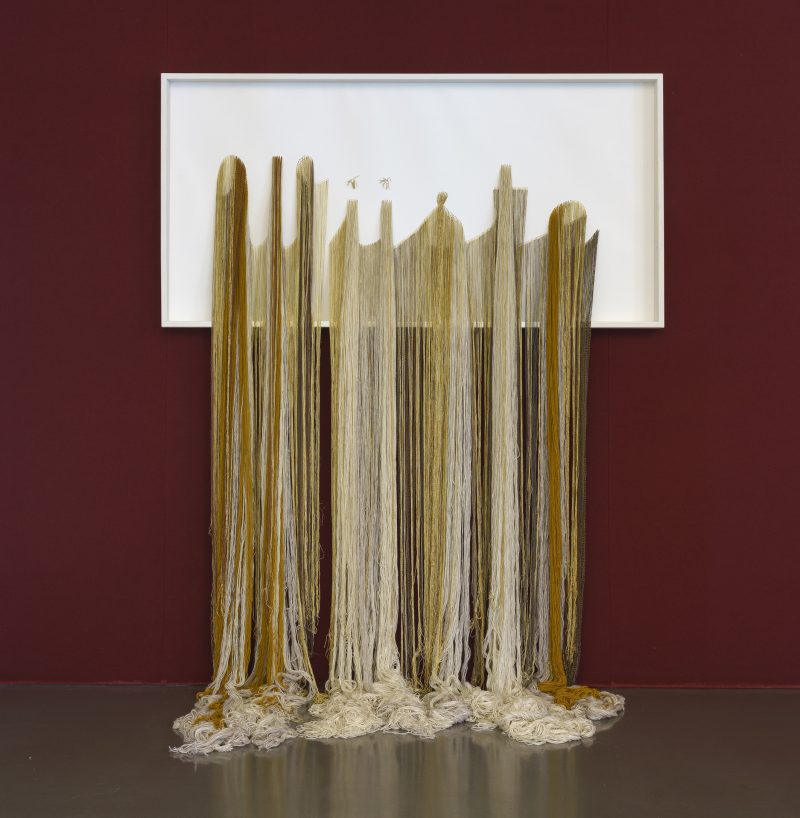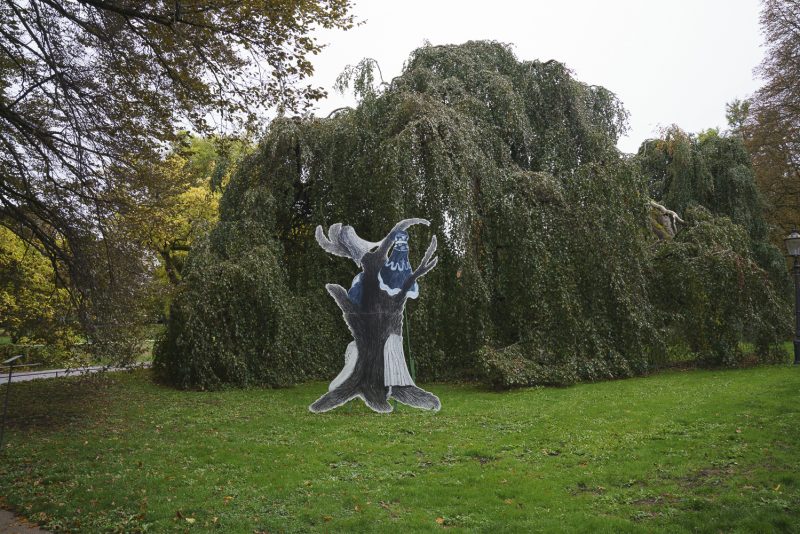Nature and State
Artists
- Michael Akstaller
- Olga Chernysheva
- Ipek Duben
- Alia Farid
- Denise Ferreira da Silva
- Will Fredo
- Vibha Galhotra
- Malina Heinemann
- Joseph Kadow
- Stelios Kallinikou
- Kavachi
- Grada Kilomba
- Nicole L'Huillier
- Robert Lippok
- Nicholas Mangan
- Mateja Meded
- Silvina Der Meguerditchian
- Hani Mojtahedy
- Ersan Mondtag
- Arjuna Neuman
- Manuel Rossner
- Christoph Schäfer
- Muhannad Shono
- Sorawit Songsataya
- Ayman Zedani
Curators
- Çağla Ilk
- Misal Adnan Yıldız
Curatorial assistance
- Sandeep Sodhi
Thanks to
We would like to thank all the artists and sponsors of the exhibition.
The Staatliche Kunsthalle Baden-Baden is an institution of the state of Baden-Württemberg under the auspices of the Ministry of Science, Research and the Arts of Baden-Württemberg, Research and Art Baden-Württemberg.

„History shows us that we exist in a timeless state, constantly traveling between time and space…“ Grada Kilomba*
From climate change to drought, isolation politics to recession, armed conflicts to authoritarian regimes, many of our existential questions, planetary problems and global crises can be formulated only in reference to these two terms; nature and state.
Following last year’s exhibition State and Nature, a multi venue project that extended both terms within the contemporary canon, this year’s survey show at Staatliche Kunsthalle Baden-Baden formulates a dialectical proposal with Nature and State.
The investigation of continuity and disobedience, possible forms of transformation of the state and the genealogical relationships between future and past are at the center of this project. The exhibition’s curatorial method is one of theater, using the script as a source of storytelling: The Dawn of Everything, A New History of Humanity (2021), by David Graeber and David Wengrow, shifts the focus of our story to questioning the main idea of the state as a denial of the state of nature. Considering how prehistoric communities shaped their decision-making processes, Nature and State pursues the idea of our ancestors might have lived together better than us, and imagines different futures following early feminist science fiction by Ursula K. Le Guin.
This way, the new chapter peacefully departs from a quote by Ursula K. Le Guin: “(...) we have no states, no nations, no presidents, no premiers, no chiefs, no generals, no bosses, no bankers, no landlords, no wages, no charity, no police, no soldiers, no wars.” (The Dispossessed, 1974).
Nature and State is not meant to be a group show in its literal sense: it is an open process that investigates temporary structures, spaces and narratives through artistic perspectives that critically question how we are ruled, controlled and governed, as well as how we can share a common imagination of togetherness. Rather than a static form of exhibition-making, the new team of Kunsthalle Baden-Baden proposes a composition with fluid, versatile and shifting methods. It invites the public to join this process over the course of the upcoming months, in which the Kunsthalle will turn into an ongoing transformation of spaces and selves. Every weekend of July and October 2022 will be hosting a specific performative program, starting with the opening weekend from Friday, July 8 to Sunday, July 10.
For Kunsthalle Baden-Baden, Grada Kilomba and Ersan Mondtag, leading actors of performative research as well as German and international theater, perform each on two occasions. O Barco/The Boat (2021) by Kilomba will be adapted for the public park surrounding Kunsthalle Baden-Baden. A newly commissioned installation by Ersan Mondtag will be activated by his likewise new performance Becoming Sculptures (2022), and further act as a stage, for artist talks during opening weekend and further performances.
At the very beginning of the exhibition course unfolds Grada Kilomba’s poetic imagination. Through the metaphor of a boat as part of a collective ceremony, Kilomba portrays the history of slavery and freedom in abstract poetry. Different tracks of storytelling on human existence and alien forms in various media are followed by an accumulation of acts, events, and discussions; all taking place in a humid temple architecture, a proposal for a temporary museum by Ersan Mondtag, that will dry out over time. The temple refers to ancient structures, where social, private, political and transcendent fields intersected. With queer statements by different artists scattered throughout it, future scenarios for our society are imagined.
The multi-layered projects of the exhibiting artists are connected through water as a leitmotif. The urgency of its politics and the location of the exhibition venue in the historical infrastructures in the city of Baden-Baden form the current projects‘ particular context, many reflecting on precious water resources.
Manuel Rossner’s digital intervention creates a critical perception of the exhibition architecture and institutional space that became an enduring geo-location while being designed for temporary shows. Through experiments of sonic intelligence, Robert Lippok, Michael Akstaller, and Nicole L’Huillier respond to the architectural, spatial and bodily senses of listening to our environments, whereas Muhannad Shono, Sorawit Songsataya, and Kavachi generate political narratives about other intelligences and interconnectedness. Ipek Duben, Olga Chernysheva and Silvina Der Meguerditchian respond with their decided female gaze to the realities of nature and state, while Cansu Çakar, Alia Farid, Will Fredo, and Christoph Schäfer directly and individually revisit the question of who owns water resources and lands, how are ecological commons shared and their reflections on our individual and collective lives imagined.
Eventually, the Kunsthalle becomes that dream we dream together; an oasis, desert, river, Black Forest or antipodean habitat, an ongoing transformation of spaces and selves… it cares for all possibilities of togetherness and sharing.
*The introductory quote by Grada Kilomba is taken from an interview by the artist with Victoria Adukwei Bulley in frieze, issue 228, 2022.
Curated program
Grada Kilomba - O'Barco / The Boat
Ersan Mondtag - Becoming Sculptures
KREISLAUF - PART I
Malina Heinemann & Joseph Kadow, Mouth of Ox (Musso I Voi) (2021-22)
KREISLAUF - PART II
Vibha Galhotra, Manthan (2015)
KREISLAUF - PART III
Olga Chernysheva, Inconsolable: The Giver of Hope at Revolution Square (2014)
KREISLAUF - PART III
Stelios Kallinikou, Weeper Capuchin (2020-22)
KREISLAUF - PART IV
Denise Ferreira da Silva & Arjuna Neuman, 4 Waters (2019), Serpent Rain, (2016), Sooth Breath (2021)
KREISLAUF - PART V
Nicholas Mangan, Ancient Lights (2015)
Mateja Meded
Fotzenschleimpower gegen Raubtierkapitalismus (2022)
RDD - Robodynamic Diffusion
A project by Michael Akstaller, Nele Jäger, Oliver Mayer and Jan St. Werner
